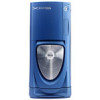Dell XPS /Dimension Gen 2 Service Manual - Page 36
Integrated Devices Legacy Select Options
 |
View all Dell XPS /Dimension Gen 2 manuals
Add to My Manuals
Save this manual to your list of manuals |
Page 36 highlights
System Memory Channel Mode AGP Aperture Displays the mode of your system memory. Displays the amount of aperture memory. The default setting is 128 MB. CPU Information CPU Speed The processor speed at which the computer boots. Press the left- or right-arrow key to toggle the CPU Speed option between the resident processor's rated speed (the default speed) and a lower-compatibility speed. A change to this option takes effect immediately and no restart is necessary. To toggle between the rated processor speed and the compatibility speed while the computer is running in real mode, press . (For keyboards that do not use American English, press .) Bus Speed The speed of the processor's system bus. Processor ID The manufacturer's identification code(s) for the installed processor. Clock Speed The core speed at which the processor(s) can operate. Cache Size The size of the processor's L2 cache. HyperThreading The setting that allows you to enables or disable Hyper-Threading technology for operating systems that support Hyper-Threading. The default setting is Disabled. NOTE: If your computer has a processor capable of supporting Hyper-Threading, the Hyper-Threading option is the first selection in the list. Integrated Devices (Legacy Select Options) Configures the following devices integrated with the system board: Network Interface The settings are On (default), Off, or On w/ PXE. Controller Mouse Port The settings are On or Off. USB Emulation The settings are On (default) and Off. USB Controller The settings are On (default) or Off. Serial Port 1 and Serial Port 2 The settings are Off and Auto (default). (Serial Port 2 appears as an option if you have a serial port card installed.) Auto automatically configures a connector to a particular designation (COM1 or COM3 for Serial Port 1; COM2 or COM4 for Serial Port 2). If you set a serial connector to Auto and then add a card that is also set to Auto, the computer automatically remaps the integrated port to the next available connector designation that shares the same IRQ setting as follows: l COM1 (I/O address 3F8h), which shares IRQ4 with COM3, is remapped to COM3 (I/O address 3E8h). l COM2 (I/O address 2F8h), which shares IRQ3 with COM4, is remapped to COM4 (I/O address 2E8h). Parallel Port NOTE: When two COM connectors share an IRQ setting, you can use either connector as necessary, but you may not be able to use both connectors at the same time. The settings are Mode, I/O Address, and DMA Channel: l Mode settings are PS/2 (default), EPP, ECP, AT, or Off. Set the Mode option according to the type of device connected to the parallel connector. To determine the correct mode to use, see the documentation that came with the device. l I/O Address settings are 378h (default), 278h, or 3BCh. The settings are not available when Mode is set to Off. NOTE: You cannot set the parallel connector to 3BCh if Mode is set to EPP. l DMA Channel appears only when Mode is set to ECP. Settings are DMA 1, DMA 3, or Off. Diskette Interface The settings are Auto (default), Read Only, and Off. l Auto turns off the integrated floppy drive controller when necessary to accommodate a controller card installed in an expansion slot. l Read Only prevents the computer's integrated floppy drive controller from writing to floppy drives and also activates the Auto setting. PC Speaker Primary Video Controller The settings are On (default) and Off. The settings are Auto (default) and Onboard. l Auto (default) - If only an AGP card is installed, the computer uses the AGP card; if only a PCI card is installed, the computer uses the PCI card; if both AGP and PCI cards are installed, the computer uses both cards. l Onboard - The computer uses the AGP card. Power Management Suspend Mode The options are S1 or S3. AC Power Recovery Determines what happens when AC power is restored to the computer. l Off (default) - The computer remains off when AC power is restored. l On - The computer starts when AC power is restored. l Last - The computer returns to the AC power state existing at the time that AC power was lost. Low Power Mode The settings are Enabled and Disabled.















